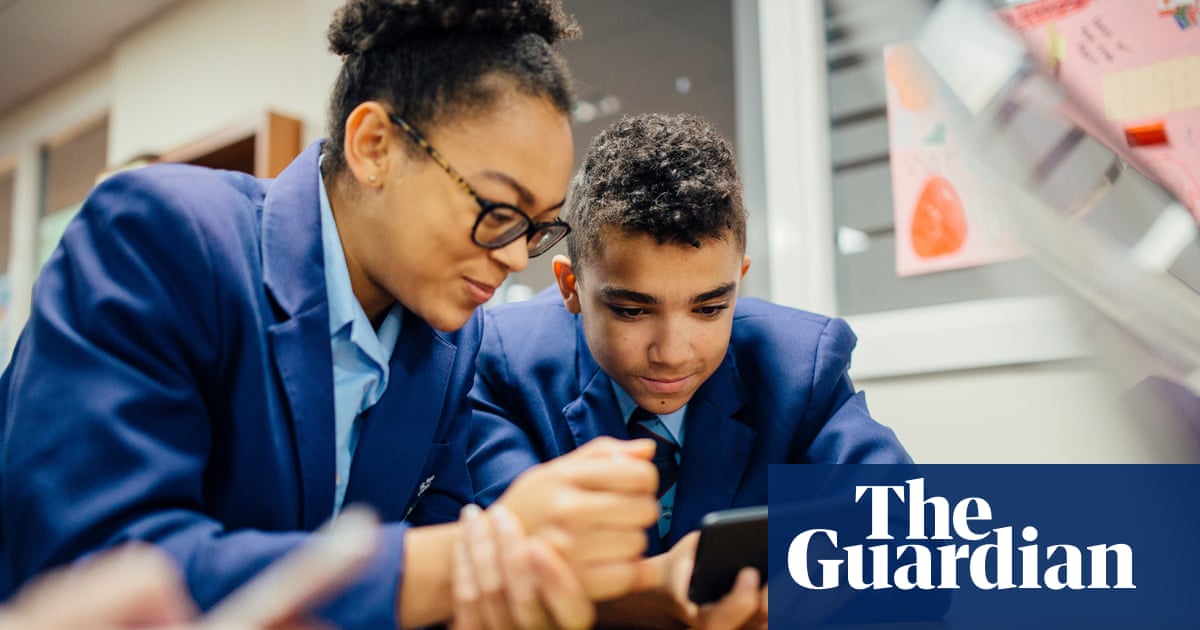A number one scholastic charged by the UK federal authorities with evaluating the outcomes of cellphones on teenagers has truly really useful protecting restrictions are “unrealistic and potentially detrimental”.
Amy Orben, from the University of Cambridge, will definitely lead the work with children and good machine make the most of that has truly been appointed by the Department for Science, Innovation and Technology (DSIT) along with a bunch of assorted different lecturers from a wide range of UK schools.
Ministers have truly to this point been proof against finishing up any type of brand-new lawful limitations on social networks and cellphones for youths that goes higher than the prevailing Online Safety Act, which secures down on hazardous materials.
Some MPs have truly been selling extra limitations that surpass hazardous materials– consisting of on accessibility to social networks for these underneath 16, full restrictions on cellphones in schools or limitations on social networks formulation which have the flexibility to coach addicting materials on younger teenagers.
In a paper Orben launched at the moment with four co-authors in the British Medical Journal (BMJ), they acknowledged restrictions and limitations weren’t prone to be dependable– although they did supporter for youths and youngsters to have phone-free rooms.
“Bans and restrictions have been successfully used for public health issues such as smoking. But smoking is not comparable with smartphone and social media use because the harms from smoking are extensive, clear-cut and by far outweigh the benefits,” the paper acknowledged.
“Prescribing abstinence from all technologies to protect against harms is unrealistic and potentially detrimental in a society where technology use is a practical necessity and confers various benefits, including information access and social support.”
The paper acknowledged that there had truly been “increased public pressure to mitigate the potential harmful effects of smartphones and social media on health, wellbeing … academic performance, disruptive behaviours and bullying.”
But it acknowledged the proof really useful there have been “no simple, one-size-fits-all answers” which whereas the vast majority of mothers and dads and policymakers had been “primed to believe arguments that smartphones and social media are inherently harmful, the evidence about their overall effect on children is not clear-cut”.
Bans on devices can “undermine children’s rights to technology design and education that will help them thrive as adults”, the lecturers alerted.
The paper acknowledged that for some much more prone children “access to certain digital content can result in grave harm” but acknowledged lawmakers should likewise acknowledge limiting acquire entry to “can be harmful to other high risk populations”.
The scientists did elevate concern regarding “trending content” focused at younger prospects to inspire frequent utilization, claiming these layouts had been “purposefully not supporting the development of healthy tech habits”.
Peter Kyle, the scientific analysis and innovation assistant, designated Orben in January to steer extra examine proper into the outcomes of cellphones on children’s wellness and wellness. Orben, a number one scholastic within the space, acknowledged she didn’t herself assist for sure plan placements. Her job has truly been talked about by each challengers and supporters for restrictions, consisting of by the Australian federal authorities, which has truly prohibited social networks for under-16s.
She knowledgeable the Guardian: “Understanding the digital world’s impact on young people is complex and there are no simple solutions. The report my team is currently leading was commissioned by government to produce recommendations on the types of research which could help generate high-quality evidence, not to provide policy recommendations.”
“As an independent researcher my role is to examine and communicate evidence clearly, not advocate specific policies. In the BMJ article, we highlighted the benefit of multiple approaches noting technology-free spaces are important but smartphone or social media bans are not a complete solution, as other areas such as digital literacy and platform safety are also important parts of the online safety picture.”
Ministers have truly come underneath stress in present months to go higher on good machine utilization for teenagers, particularly following the Netflix dramatization Adolescence which reveals a homicide devoted by a 13-year-old in thrall to toxic “manosphere” materials on-line.
The Labour MP Josh MacAlister was compelled to go down methods in an unique participant’s expense on limiting social networks formulation for teenagers when preachers opposed the methods.
The training and studying assistant, Bridget Phillipson, is evaluating her division’s requirements on good machine restrictions in schools, by looking at somewhat affiliate of faculties to see if the prevailing laws are functioning correctly.
The head of state, Keir Starmer, assembled a roundtable with advocates and the producers of Adolescence in No 10 on Monday, the place he really useful that it have to be talked about further extensively in schools. But he acknowledged there “isn’t one single policy lever to pull” when it involved resolving potential damages.
The DSIT has truly been gotten in contact with for comment.



